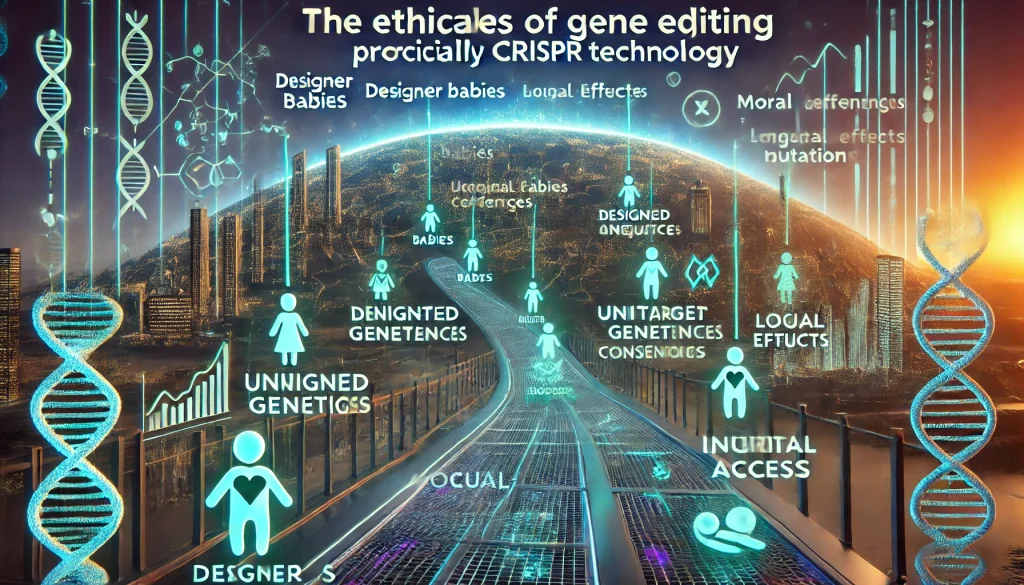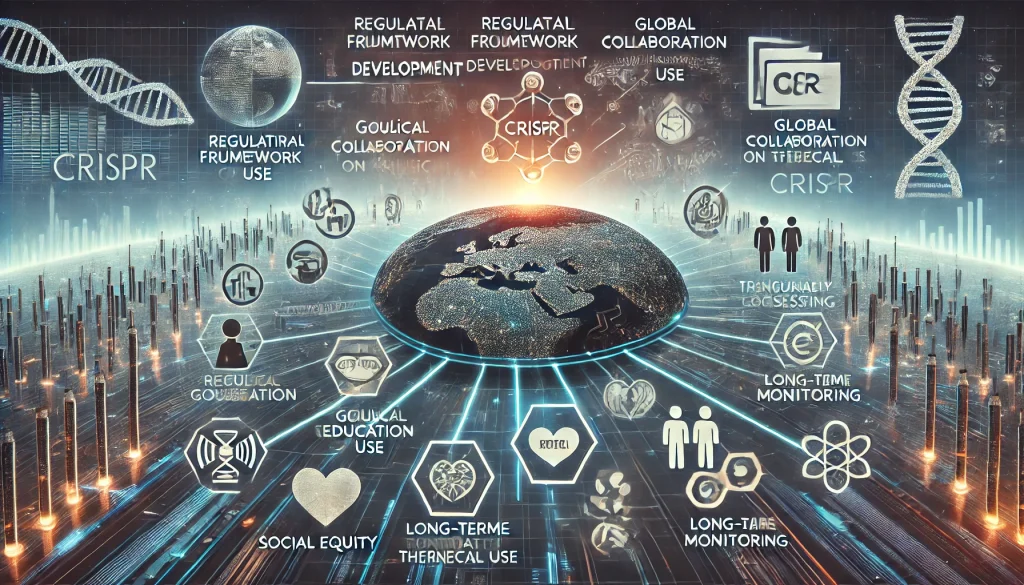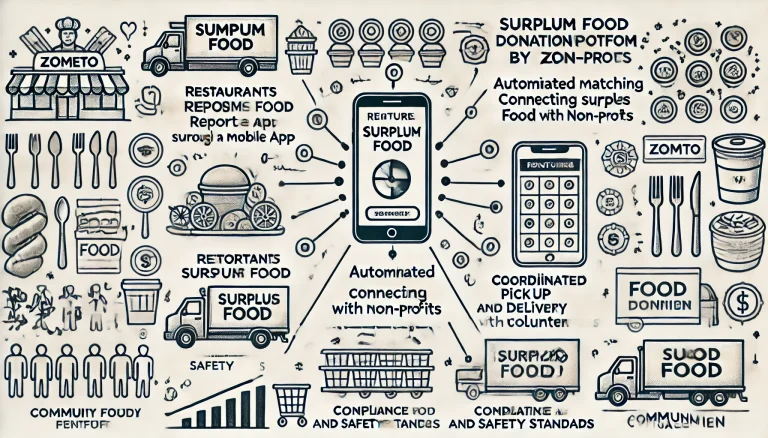Problem Statement
Advances in gene editing, particularly CRISPR (Clustered Regularly Interspaced Short Palindromic Repeats) technology, have opened new frontiers in medicine, offering the potential to treat and even cure genetic disorders that were once thought to be untreatable. By precisely editing the DNA of living organisms, scientists can target and correct mutations responsible for diseases such as cystic fibrosis, sickle cell anemia, and certain types of cancer. These breakthroughs hold the promise of transforming healthcare, reducing suffering, and improving the quality of life for millions of people worldwide.
However, alongside these remarkable opportunities, gene editing also raises profound ethical concerns that must be addressed to ensure responsible use of the technology. One of the most contentious issues is the potential for “designer babies,” where gene editing could be used not just for therapeutic purposes but to enhance or alter physical, intellectual, or behavioral traits in unborn children. This prospect raises questions about the boundaries of human intervention in natural processes and the potential societal implications of such choices.
Another significant concern is the risk of unintended genetic consequences. While CRISPR is highly precise, there is still the possibility of off-target effects, where unintended changes occur in the genome. These changes could have unforeseen and potentially harmful effects on individuals and future generations. Ensuring the safety and efficacy of gene editing technologies is paramount to prevent irreversible damage.
Furthermore, the accessibility of these advanced technologies presents a challenge in terms of social equity. If gene editing treatments become available but are prohibitively expensive, they may only be accessible to the wealthy, exacerbating existing social inequalities. This could lead to a situation where certain segments of the population are able to enhance their health and capabilities, while others are left behind, deepening the divide between the rich and the poor.
Balancing the promise of gene editing with ethical responsibility requires a comprehensive approach that involves rigorous regulation, transparent public dialogue, and a commitment to equitable access. The medical and pharmaceutical industries must work together with policymakers, ethicists, and the public to navigate the complex ethical landscape of gene editing, ensuring that these innovations benefit all of humanity without compromising ethical standards.
Pain Points
- Designer Babies: The ethical dilemma of using gene editing to enhance or alter traits in unborn children.
- Unintended Genetic Consequences: The risk of off-target effects and unintended changes in the genome.
- Social Inequality: The potential for gene editing to exacerbate social inequalities if access is limited to the wealthy.
- Regulatory Challenges: The difficulty of creating and enforcing regulations that balance innovation with ethical concerns.
- Long-Term Effects: The unknown long-term consequences of gene editing on individuals and future generations.
- Public Trust: Building and maintaining public trust in gene editing technologies amidst ethical controversies.
- Informed Consent: Ensuring that patients and participants fully understand the risks and implications of gene editing.
- Moral Boundaries: The challenge of defining ethical boundaries in the use of gene editing for non-therapeutic purposes.
- Global Disparities: Differences in regulatory frameworks and access to gene editing technologies across countries.
- Equitable Access: Ensuring that the benefits of gene editing are accessible to all, not just the privileged few.

Future Vision
Our platform envisions a future where gene editing technologies like CRISPR are used responsibly and ethically to treat genetic disorders and improve human health, while avoiding the pitfalls of inequality and ethical transgressions. The platform will advocate for the development and implementation of comprehensive regulatory frameworks that ensure the safety, efficacy, and ethical use of gene editing technologies. These frameworks will be developed in collaboration with international bodies, ensuring that regulations are consistent across countries and that ethical standards are upheld globally.
To address the concern of “designer babies,” the platform will promote clear guidelines that distinguish between therapeutic and non-therapeutic uses of gene editing. The focus will be on using these technologies to prevent and treat serious genetic disorders, rather than enhancing or altering non-medical traits. By establishing and enforcing these boundaries, the platform will help prevent the misuse of gene editing for purposes that could lead to social and ethical dilemmas.
The platform will also emphasize the importance of transparency and public engagement in the development and use of gene editing technologies. By fostering open dialogue between scientists, ethicists, policymakers, and the public, the platform will help build trust and ensure that the perspectives of all stakeholders are considered. Educational initiatives will be launched to improve public understanding of gene editing, its potential benefits, and its risks, ensuring that informed consent is truly informed.
To address the issue of social inequality, the platform will work to ensure that gene editing therapies are accessible to all, regardless of socioeconomic status. This will involve advocating for pricing strategies that make these treatments affordable, as well as supporting efforts to develop gene editing technologies in low- and middle-income countries. By promoting equitable access, the platform will help ensure that the benefits of gene editing are shared by all, rather than exacerbating existing disparities.
Through these initiatives, our platform aims to create a world where gene editing is used to heal and improve lives in a way that is ethical, responsible, and equitable.
Use Cases
- Therapeutic Gene Editing: Using CRISPR to treat genetic disorders like cystic fibrosis and sickle cell anemia.
- Regulatory Framework Development: Creating and implementing global standards for the ethical use of gene editing.
- Public Education Campaigns: Informing the public about the benefits, risks, and ethical considerations of gene editing.
- Ethical Guidelines for Non-Therapeutic Use: Establishing clear boundaries to prevent the use of gene editing for enhancement purposes.
- Global Collaboration on Regulation: Ensuring consistent ethical standards and regulatory frameworks across countries.
- Equitable Access Initiatives: Advocating for affordable pricing and accessibility of gene editing therapies for all populations.
- Informed Consent Protocols: Developing comprehensive informed consent procedures that ensure participants understand the risks and implications.
- Long-Term Monitoring of Gene Editing: Implementing systems to track the long-term effects of gene editing on individuals and future generations.
- Addressing Social Inequality: Ensuring that gene editing technologies do not exacerbate existing social inequalities.
- Building Public Trust: Fostering transparency and open dialogue to build and maintain public trust in gene editing technologies.
Target Users and Stakeholders
- User: Geneticists, Bioethicists, Healthcare Providers, and Regulatory Agencies
- Age Group: 30-60 years
- Gender: M/F
- Usage Pattern: Regular usage for managing the ethical, regulatory, and clinical aspects of gene editing technologies
- Benefit: Ensuring responsible and ethical use of gene editing, protecting public trust, and promoting equitable access
- Stakeholders:
- Medical Researchers: Scientists developing and testing gene editing therapies
- Pharmaceutical Companies: Businesses involved in the commercialization of gene editing technologies
- Regulatory Bodies: Agencies responsible for overseeing the safe and ethical use of gene editing
- Ethicists: Experts providing guidance on the moral implications of gene editing
- Patients: Individuals who could benefit from gene editing therapies
- Public: General population with a stake in the ethical use of gene editing technologies
Key Competition
- Editas Medicine: Focuses on developing CRISPR-based therapies for genetic disorders.
- CRISPR Therapeutics: Pioneers in the use of CRISPR technology for the treatment of genetic diseases.
- Intellia Therapeutics: Develops genome editing technologies to treat life-threatening diseases.
- Sangamo Therapeutics: Uses gene editing to develop therapies for genetic disorders and other serious diseases.
- Bluebird Bio: Combines gene editing and gene therapy to treat genetic diseases.
Products/Services
- Editas Medicine CRISPR Therapies: Development of CRISPR-based treatments for genetic disorders.
- CRISPR Therapeutics Gene Editing: Pioneering CRISPR technology for the treatment of genetic diseases.
- Intellia Therapeutics Genome Editing: Advancing genome editing technologies for life-threatening diseases.
- Sangamo Therapeutics Gene Therapy: Using gene editing to develop innovative therapies for genetic disorders.
- Bluebird Bio Gene Therapy: Combining gene editing and gene therapy to address genetic diseases.
Active Startups
- Beam Therapeutics: Focuses on precision gene editing to develop treatments for genetic diseases.
- Prime Medicine: Pioneers in prime editing, a new form of gene editing with greater precision.
- Verve Therapeutics: Uses gene editing to treat cardiovascular diseases with a focus on single-dose therapies.
- Graphite Bio: Combines gene editing and gene therapy to cure genetic diseases.
- Caribou Biosciences: Develops CRISPR-based therapies for serious diseases with a focus on precision and safety.
- Mammoth Biosciences: Uses CRISPR technology for diagnostic and therapeutic applications.
- Inscripta: Advances gene editing tools for research and therapeutic applications.
- Chroma Medicine: Focuses on epigenetic editing to develop durable gene therapies.
- Tessera Therapeutics: Innovates with gene writing technology to create permanent cures for genetic diseases.
- CrisprBits: Develops CRISPR-based diagnostic tools for detecting genetic mutations and diseases.
Ongoing Work in Related Areas
- Ethical Frameworks for Gene Editing: Developing guidelines for the responsible use of gene editing technologies
- Public Engagement in Gene Editing: Encouraging dialogue between scientists, ethicists, and the public on gene editing.
- Safety and Efficacy Research: Conducting research to ensure the safety and effectiveness of gene editing therapies.
- Access and Affordability Initiatives: Promoting equitable access to gene editing technologies across different populations.
- Global Collaboration on Gene Editing: Working with international bodies to harmonize regulations and ethical standards.
Recent Investment
- Beam Therapeutics: $260M in Series C funding led by Perceptive Advisors, March 2020.
- Prime Medicine: $315M in Series A and B funding led by Arch Venture Partners, June 2021.
- Verve Therapeutics: $94M in Series B funding led by Wellington Management, October 2020.
- Graphite Bio: $150M in Series B funding led by RA Capital Management, February 2021.
- Caribou Biosciences: $115M in Series C funding led by PFM Health Sciences, March 2021.
Market Maturity
The market for gene editing technologies, particularly CRISPR, is rapidly maturing, driven by significant advancements in the treatment of genetic disorders. Companies like Editas Medicine, CRISPR Therapeutics, and Intellia Therapeutics are at the forefront, developing innovative therapies that have the potential to revolutionize healthcare. At the same time, startups like Beam Therapeutics, Prime Medicine, and Verve Therapeutics are pushing the boundaries of what gene editing can achieve, focusing on precision, safety, and accessibility. Significant investments in ethical frameworks, public engagement, and global collaboration are shaping the future of gene editing, ensuring that these powerful technologies are used responsibly and equitably. As the market continues to evolve, we expect to see more integrated and ethically responsible solutions that balance innovation with the protection of public trust and social equity.
Summary
Advances in gene editing, particularly CRISPR technology, offer enormous potential for treating genetic disorders. However, these innovations also raise significant ethical concerns, such as the potential for “designer babies,” unintended genetic consequences, and the risk of exacerbating social inequalities if these technologies are only accessible to the wealthy. Balancing innovation with ethical responsibility is a critical challenge for the medical and pharmaceutical industries. Our proposed platform leverages regulatory framework development, public education campaigns, ethical guidelines for non-therapeutic use, and equitable access initiatives to address these challenges. Key pain points include the ethical dilemma of designer babies, unintended genetic consequences, social inequality, regulatory challenges, long-term effects, public trust, informed consent, moral boundaries, global disparities, and equitable access.
Target users include geneticists, bioethicists, healthcare providers, and regulatory agencies, with stakeholders encompassing medical researchers, pharmaceutical companies, regulatory bodies, ethicists, patients, and the public. Key competitors like Editas Medicine, CRISPR Therapeutics, Intellia Therapeutics, Sangamo Therapeutics, and Bluebird Bio offer various CRISPR-based therapies, while startups such as Beam Therapeutics, Prime Medicine, and Verve Therapeutics are driving innovation in this space. Recent investments highlight significant interest and growth potential in platforms addressing the ethical challenges of gene editing.
By addressing these challenges and leveraging advanced technologies, our platform aims to create a world where gene editing is used to heal and improve lives in a way that is ethical, responsible, and equitable.



